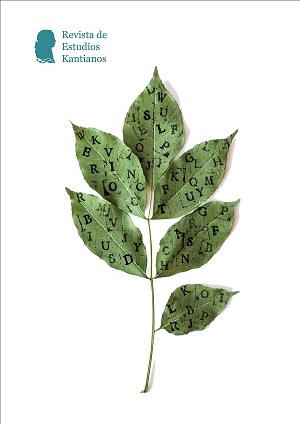Disposiciones de la naturaleza humana y autonomía moral en la filosofía práctica de Kant
DOI:
https://doi.org/10.7203/ Abstract
Abstract
En una época en que resurgen nuevas formas de naturalismo e incluso de naturalización de la razón, mi propósito es mostrar que en Kant encontramos un modelo clásico de pensamiento en el que es posible armonizar lo natural y lo moral, a partir de las raíces pragmáticas de la razón pura práctica en la naturaleza humana (Antropología pragmática) y de las disposiciones naturales y morales, expuestas en una estética de las costumbres o estética de la libertad, que constituyen un complemento necesario de la metafísica de las costumbres o metafísica de la libertad entendida como autonomía moral.
 Downloads
Downloads
Downloads
Published
How to Cite
-
Abstract1826
-
PDF (Español)1820
Issue
Section
License
![]()
The authors who publish in this journal agree with the following terms:
- The authors retain their copyright and guarantee to the journal the right to be the first to publish the work and to license it under a Creative Commons Attribution License that allows others to share the work with an acknowledgement of its authorship and the initial publication in this journal.
- Authors may separately establish additional agreements for non-exclusive distribution of the version of the work published in the journal (for example, placing it in an institutional repository or publishing it in a book), with acknowledgement of its initial publication in this journal.
- Authors are allowed and encouraged to disseminate their work electronically (e.g., in institutional repositories or on their own website) before and during the submission process, as this can lead to productive exchanges as well as earlier and greater citation of published work (see The Effect of Open Access).








